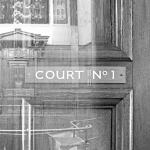Recently, Debt-Claims Solicitors were instructed to petition the Court for the winding-up of a company which owed our client a reasonable sum of money. The twist was that the debtor company maintained that it had paid our client and attempted to evidence this by way of a bank statement that showed a debit entry of the payment apparently leaving the debtor’s bank. Our client, however, had not received the payment.
We prepared and served a statutory demand, to which there was no response or payment and so a petition was presented. In much the same way, no response or payment was received following service of the petition and so the petition was advertised in the London Gazette. In preparing for the hearing, we reached out to the debtor company to agree the bundle. The debtor maintained that they had made payment and attempted to rely on the bank statement previously mentioned, assuming that this would result in our client paying its costs. Our view was simple, that evidence of making a payment is not proof of receipt by the client.
A few days before the hearing, our client finally received payment of the petition debt but not the costs. The debtor company instructed counsel to oppose our costs on the basis that the petition was an abuse of process.
In hearing the matter, the judge did not entertain the debtor’s proposed abuse of process argument and noted that the debtor had made no attempt to restrain issuing or advertising of the petition. Accordingly, our client’s costs were awarded.
Whilst this case does not set any sort of precedent, it adds weight to the argument that simply evidencing sending payment which has not been received, is not the same as making payment and until that payment is made, the contractual liabilities remain. The same could be said where a debtor claims to have posted a cheque.
If you have unpaid debts of £750 or greater, talk to us today about serving a statutory demand or winding-up petition on the debtor.


